Pope Francis: "Religions, while carrying out their irreplaceable role of seeking & witnessing to the Absolute, require freedom of self-expression. Religious freedom represents the best channel for civil coexistence."
Michael Novakhov's favorite articles - 7:49 AM 9/14/2022
vatican.va/content/france…
Amid Russia's war pope says faith cannot justify evil
vatican.va/content/france…
youtube.com/watch?v=dxuLVg…
Michael Novakhov's favorite articles on Inoreader inoreader.com/stream/user/10…
Mr President of the Republic, Honourable Members of Government and the Diplomatic Corps, Distinguished Religious and Civil Authorities, Representatives of Civil Society and the World of Culture,
Ladies and Gentlemen!
I offer you a cordial greeting and I thank the President for his kind words. I am honoured to be here with you, in this land as vast as it is ancient. I have come here as a pilgrim of peace, seeking dialogue and unity. Our world urgently needs peace: it needs to recover harmony. A harmony that, here in this country, can be illustrated by what I have learned is one of its traditional musical instruments: the dombra. The dombra is a hallmark of your culture and one of the most important symbols of Kazakhstan, so much so that a specific day was recently set aside to honour it. I would like to use the dombra as a starting-point for what I wish to share with you today.
In preparing for this journey, I also learned that some versions of the dombra were already in use during the Middle Ages and that, down the centuries, it accompanied the recitation of sagas and poetry, linking the past to the present. As a symbol of continuity in diversity, its rhythm accompanies your country’s memory; it thus serves as a reminder of how important it is, amid today’s rapid economic and social changes, not to neglect the bonds that connect us to the lives of those who have gone before us. I think particularly of those traditions that enable us to cherish the past and to value the rich inheritance we have received. Here I think, for example, of your fine popular tradition of cooking on Friday mornings seven loaves in honour of your ancestors.
The memory of your country, which Pope John Paul II, as a pilgrim to Kazakhstan, defined as a “land of martyrs and of believers, land of deportees and of heroes, land of intellectuals and artists” (Address at Welcome Ceremony, 22 September 2001), embraces a glorious history of culture, humanity and suffering. How can we fail to recall in particular the prison camps and the mass deportations that witnessed, in the cities and in the boundless steppes of these regions, the oppression of so many peoples? Yet Kazakhs did not let themselves remain prisoners of these injustices: the memory of your seclusion led to a deep concern for inclusion. In this land, traversed from ancient times by great displacements of peoples, may the memory of the sufferings and trials you endured be an indispensable part of your journey towards the future, inspiring you to give absolute priority to human dignity, the dignity of every man and woman, and of every ethnic, social and religious group.
To return to the dombra: it is played by plucking its two cords. Kazakhstan is known for its capacity to keep creating harmony between “two parallel strings”: temperatures that are as frigid in winter as they are torrid in summer; and between tradition and progress, as symbolized by the encounter between historic cities and modern cities like this capital. Above all, in this country we can hear the “notes” of two souls, Asiatic and European, which give it a permanent “mission of linking two continents” (ID., Address to Young People, 23 September 2001); of being “a bridge between Europe and Asia”, and “a junction between East and West” (ID., Departure Ceremony, 25 September 2001). The strings of the dombra are usually heard alongside other stringed instruments typical of these places: a reminder that harmony grows and matures in togetherness, in the choral unity that leads to a “symphonic” social life. A fine local proverb states that, “unity is the source of success”. If that is true everywhere, here it is true in a very particular way. The 550 ethnic groups and the over 80 languages present in the country, with their diverse histories and cultural and religious traditions, represent an extraordinary “concert”; they make Kazakhstan a unique multiethnic, multicultural and multi-religious laboratory and disclose its particular vocation, that of being a country of encounter.
I have come here to emphasize the importance and the urgency of this aspect of encounter, to which the religions are called especially to contribute. I will have the honour of taking part in the Seventh Congress of Leaders of World and Traditional Religions. Fittingly, the Constitution of Kazakhstan, in defining it as a secular state, provides for freedom of religion and belief. A healthy secularity, one that acknowledges the important and indispensable role of religion and resists the forms of extremism that disfigure it, represents an essential condition for the equal treatment of each citizen, while fostering a sense of loyalty to the country on the part of all its ethnic, linguistic, cultural and religious groups. Religions, while carrying out their irreplaceable role of seeking and witnessing to the Absolute, require freedom of self-expression. Religious freedom represents the best channel for civil coexistence.
This requirement is evoked by the very name of your people, for the word “Kazakh” refers to walking in freedom and independence. The defence of freedom, an aspiration inscribed in the heart of each person, the sole condition for an authentic encounter between individuals and groups, is expressed in civil society chiefly by the recognition of rights, accompanied by duties. In this regard, I wish to express appreciation for the affirmation of the value of human life embodied by the abolition of the death penalty in the name of each human being’s right to hope. Together with this, it is important to guarantee freedom of thought, conscience and speech, in order to enable each individual to play his or her unique and equal role in service to society as a whole.
Here too, the dombra can assist our reflection. It is for the most part a popular musical instrument and, as such, bespeaks the beauty of preserving the genius and spirit of a people. This is first the task of the civil authorities, who are primarily responsible for the advancement of the common good, and finds expression above all in support for democracy, which constitutes the most suitable form for translating power into service to the entire people and not simply to a few. I know that, especially in recent months, a process of democratization has been initiated, with the aim of strengthening the competences of the Parliament and of the local authorities and, more generally, a greater distribution of power. This is a meritorious and demanding process, and certainly not a short-term one, that requires persevering towards the goal without turning back. Indeed, trust in those who govern increases when promises are not simply a means to an end, but are effectively implemented.
Democracy and modernization everywhere must be more than fine words; they must be embodied in concrete service to people: a “good politics”, born of listening to people and responding to their legitimate needs, constant engagement with civil society and nongovernmental and humanitarian organizations, and particular concern for workers, young people and the more vulnerable sectors of society. Every country in the world likewise needs measures to combat corruption. This truly democratic political “style” is the most effective response to possible cases of extremism, personalism and populism that threaten the stability and welfare of peoples. I think too of the need for economic security, which here at the beginning of the year was called for in areas that, despite the presence of significant energy resources, are facing various difficulties. This is a challenge that concerns Kazakhstan but also the world as a whole, in which integral development is held hostage by widespread injustice, whereby resources are unequally distributed. It is the task of the State, but also of the private sector, to treat all groups in society with justice, with equality of rights and duties, and to promote economic development not on the basis of the profits of a few, but of the dignity of each worker.
Let us return to the dombra – they will say that this Pope is a musician! The dombra unites Kazakhstan to its neighbours in surrounding countries and helps to spread its culture in the world. I express my hope that the name of this great country may continue to be a synonym of harmony and peace. Kazakhstan represents a significant geopolitical crossroads, and so it has a fundamental role to play in lessening cases of conflict. Pope John Paul II came here to sow seeds of hope immediately after the tragic attacks of 2001. I am visiting you in the course of the senseless and tragic war that broke out with the invasion of Ukraine, even as other conflicts and threats of conflict continue to imperil our times. I have come to echo the plea of all those who cry out for peace, which is the essential path to development for our globalized world. And this is peace: a path of integral development for our globalized world.
The need to expand the efforts of diplomacy to promote dialogue and encounter thus becomes all the more pressing, since nowadays the problem of one is the problem of all, and those who hold greater power in the world have greater responsibility with regard to others, especially those countries most prone to unrest and conflict. This should be our concern, not merely our own individual interests. Now is the time to stop intensifying rivalries and reinforcing opposing blocs. We need leaders who, on the international level, can enable peoples to grow in mutual understanding and dialogue, and thus give birth to a new “spirit of Helsinki”, the determination to strengthen multilateralism, to build a more stable and peaceful world, with an eye to future generations. For this to happen, what is needed is understanding, patience and dialogue with all. I repeat: with all.
Thinking specifically of global commitment to peace, I express deep appreciation for this country’s decisive repudiation of nuclear weapons and its efforts to develop energy and environmental policies centred on decreased dependence on carbon fuel and on investment in clean sources of energy, the importance of which was emphasized by the International Exhibition held here five years ago. Together with a commitment to interreligious dialogue, these are concrete seeds of hope sown in the common soil of humanity; it is up to us to cultivate those seeds for the sake of coming generations, for the young, whose desires must be seriously considered as we make decisions affecting the present and the future. The Holy See is at your side in this pursuit: immediately after the country’s independence thirty years ago, diplomatic relations were established and now, as this anniversary approaches, I am happy to be able to visit this country. I assure you of the desire of Catholics, who have been present in central Asia from ancient times, to continue to testify to the spirit of openness and respectful dialogue that distinguishes this land. And they do so without a spirit of proselytism.
Mr President, dear friends, I thank you for your kind welcome, which demonstrates your celebrated sense of hospitality, as well as for the opportunity to spend these days in fraternal dialogue with the leaders of many religions. May the Most High bless the vocation of peace and unity proper to Kazakhstan, the country of encounter. To you who have primary responsibility for the common good, and to all the people of the nation, I express my joy at being here and my readiness to accompany with prayer and closeness every effort being made to ensure the prosperous and harmonious future of this great country. Raqmét [Thank you]! God bless Kazakhstan!
Dear brothers and sisters!
Let me address you in this direct and familiar way, as brothers and sisters. For that is how I would like to greet all of you – religious leaders and authorities, members of the diplomatic corps and of international organizations, representatives of academic and cultural institutions of civil society and various nongovernmental organizations – in the name of the fraternity that unites us as children of the same Heaven.
Before the mystery of the infinite that transcends and attracts us, the religions remind us that we are creatures; we are not omnipotent, but men and women journeying towards the same heavenly goal. Our shared nature as creatures thus gives rise to a common bond, an authentic fraternity. It makes us realize that the meaning of life cannot be reduced to our own individual interests, but is deeply linked to the fraternity that is part of our identity. We mature only with others and thanks to others. Dear leaders and representatives of world and traditional religions, we are meeting in a country traversed down the centuries by great caravans. In these lands, not least through the ancient silk route, many histories, ideas, faiths and hopes have intersected. May Kazakhstan be once more a land of encounter between those who come from afar. May it open a new route, centred on human relationships: on respect, sincere dialogue, respect for the inviolable dignity of each human being and mutual cooperation. A route that is fraternal, to be travelled together towards the goal of peace.
Yesterday I spoke using the image of the dombra; today I would like to associate a voice to that musical instrument: that of the country’s most renowned poet and the father of its modern literature, an educator and composer often portrayed with the dombra. Abai (1845-1904), as he is popularly known, has left us writings that are steeped in religious devotion and reflect the noble soul of this people: its sage discernment, its yearning for a peace found through humble questioning, and its pursuit of a genuinely humane wisdom, never closed-minded but open to being inspired by a variety of experiences. Abai challenges us by asking a timeless question: “What is the beauty of life, if one does not go deep?” (Poems, 1898). Another poet, pondering the meaning of life, placed on the lips of a shepherd in these vast lands of Asia an equally essential question: “Where will this, my brief wandering, lead?” (G. LEOPARDI, Canto notturno di un pastore errante dell’Asia). Questions like these point to humanity’s need for religion; they remind us that we human beings do not exist so much to satisfy earthly interests or to weave purely economic relationships, as to walk together, as wayfarers, with our eyes raised to the heavens. We need to make sense of the ultimate questions, to cultivate a spirituality; we need, as Abai says, to keep “the soul alive and the mind clear” (Book of Words, Word 6).
Dear brothers and sisters, the world expects us to be examples of souls alive and minds clear; it looks to us for an authentic religiosity. It is time to realize that the fundamentalism defiles and corrupts every creed; time for open and compassionate hearts. It is also time to consign to the history books the kind of talk that for all too long, here and elsewhere, has led to distrust and contempt for religion, as if it were a destabilizing force in modern society. These lands are all too familiar with the legacy of decades of state-imposed atheism: that oppressive and stifling mentality for which the mere mention of the word “religion” was greeted with embarrassed silence. Religion is not a problem, but part of the solution for a more harmonious life in society. The pursuit of transcendence and the sacred value of fraternity can inspire and illumine the decisions that need to be made amid the geopolitical, social, economic, ecological, but fundamentally spiritual crises that many modern institutions, including democracies, are presently experiencing, to the detriment of security and concord among peoples. We need religion, in order to respond to the thirst for world peace and the thirst for the infinite that dwells in the heart of each man and woman.
For this reason, an essential condition for genuinely human and integral development is religious freedom. Brothers and sisters, we are free. Our Creator “stepped aside for us”; in a manner of speaking, he “limited” his absolute freedom in order to enable us, his creatures, to be free. How can we then presume to coerce our brothers and sisters in his name? “As believers and worshipers”, Abai once again tells us, “we must not claim that we can force others to believe and worship” (Word 45). Religious freedom is a basic, primary and inalienable right needing to be promoted everywhere, one that may not be restricted merely to freedom of worship. Each person has the right to render public testimony to his or her own creed, proposing it without ever imposing it. This is the correct method of preaching, as opposed to proselytism and indoctrination, from which all are called to step back. To relegate to the private sphere our most important beliefs in life would be to deprive society of an immense treasure. On the other hand, to work for a society marked by the respectful coexistence of religious, ethnic and cultural differences is the best way to enhance the distinctive features of each, to bring people together while respecting their diversity, and to promote their loftiest aspirations without compromising their vitality.
In this way, we see both the perennial importance of religion and its relevance for our own time, which Kazakhstan has impressively brought to the fore in the past two decades by hosting this worldwide Congress. The present meeting invites us to reflect on the role we are called to play in the spiritual and social development of humanity in this post-pandemic world.
The pandemic, between vulnerability and responsibility, represents the first of four global challenges that I would like to set forth. Those challenges call all of us – and in a special way the religions – to greater unity of purpose. Covid-19 put us all in the same boat. It made us realize, as Abai said, that “we are not demiurges but mortals” (ibid.). All of us felt vulnerable, all of us in need of help, none of us completely independent, none completely self-sufficient. Presently however, we are challenged not to squander the powerful sense of solidarity that we experienced by pressing on as if nothing happened, without acknowledging that we must confront together urgent needs that concern us all. The religions must not be indifferent to this: they are called to be present on the front lines, as promoters of unity amid the grave challenges that risk dividing our human family even further.
Specifically, it is up to us, who believe in the Divine, to help our brothers and sisters at the present time not to forget our vulnerability. Not to fall into illusions of omnipotence fostered by a technological and economic progress that is of itself insufficient. Not to let ourselves be entangled in the web of profits and earnings, as if they were the solution to every evil. Not to back an unsustainable development that fails to respect the limits imposed by creation. Not to let ourselves be taken in by the superficial allure of consumerism, since material goods are for man and not man for material goods. In a word, the sense of shared vulnerability that emerged during the pandemic should motivate us to move forward, not as we did before, but now with greater humility and foresight.
In addition to reminding us of our vulnerability and our responsibility, believers in a post-pandemic world are called to care: to care for humanity in all its aspects by becoming artisans of communion, witnesses of a cooperation that transcends the confines of our community, ethnic, national and religious affiliations. How do we embark upon so demanding a mission? Where do we begin? We begin by listening to the poor, by giving a voice to the voiceless, by bearing witness to a global solidarity concerned above all for them, the poor and the needy, who suffered most from the pandemic, which so forcefully brought out the injustice of global inequalities and imbalances. How many people, even today, lack ready access to vaccines! Let us be on their side, not on the side of those who have more and give less. Let us become prophetic and courageous voices of conscience. Let us show ourselves neighbours to all, but especially to those most neglected in our time: the disinherited, the poor and the helpless, and those who suffer in silence and general disregard. What I propose is not only a path to greater attentiveness and solidarity, but also a path to healing for our societies. For poverty is precisely what enables the spread of epidemics and other great evils that flourish on the terrain of poverty and inequality. Poverty continues to be the major factor of risk in our day. With great sagacity, Abai asked, “Can those who are hungry keep a clear mind… and show diligence in learning? Poverty and quarrels… breed violence and greed” (Word 25). As long as inequality and injustice continue to proliferate, there will be no end to viruses even worse than Covid: the viruses of hatred, violence and terrorism.
This brings us to the second global challenge, one that has a special claim on believers: the challenge of peace. In recent decades, dialogue among religious leaders has dealt primarily with this question. Yet, we look around us and see our time still plagued by the scourge of war, by a climate of hostility and confrontation, by an inability to step back and hold out a hand to the other. Brothers and sisters, a leap forward is required, and it needs to come from us. If the Creator, to whom we have devoted our lives, is the author of human life, how can we, who call ourselves believers, consent to the destruction of that life? And how can we imagine that the men and women of our time, many of whom live as if God did not exist, can be inspired to engage in respectful and responsible dialogue if the great religions, which are the soul of so many cultures and traditions, are not themselves actively committed to peace?
Mindful of the wrongs and errors of the past, let us unite our efforts to ensure that the Almighty will never again be held hostage to the human thirst for power. Abai observes that, “he who permits evil, and does not oppose it, cannot be regarded as a true believer. At best he is a half-hearted believer” (cf. Words 38). Dear brothers and sisters, each and every one of us needs to be purified of evil. The great Kazakh poet insists on this; in his words, “he who abandons learning deprives himself of a divine blessing”, and “a person who is not strict in his ways and is not capable of compassion cannot be considered a believer” (Word 12). So, brothers and sisters, let us purify ourselves of the presumption of feeling self-righteous, with no need to learn anything from anyone. Let us free ourselves of those reductive and destructive notions that offend the name of God by harshness, extremism and forms of fundamentalism, and profane it through hatred, fanaticism, and terrorism, disfiguring the image of man as well. As Abai says, “the source of humanity is love and justice… They are the crown of divine creation” (Word 45). May we never justify violence. May we never allow the sacred to be exploited by the profane. The sacred must never be a prop for power, nor power a prop for the sacred!
God is peace. He guides us always in the way of peace, never that of war. Let us commit ourselves, then, even more to insisting on the need for resolving conflicts not by the inconclusive means of power, with arms and threats, but by the only means blessed by heaven and worthy of man: encounter, dialogue and patient negotiations, which make progress especially when they take into consideration the young and future generations. For the young embody the hope that peace will come about, not as the fragile outcome of painstaking negotiations, but as the fruit of persevering commitment to an education that can support their aspirations for development and a serene future. Abai, in that sense, encourages the expansion of learning beyond the limits of one’s own culture, in order to embrace the knowledge, history and literature of others. Let us invest, I beg you, in this: not in more weapons, but in education!
In addition to the challenges of the pandemic and of peace, let us now turn to a third challenge, that of fraternal acceptance. Today we find it hard to accept the human being. Each day children, born and unborn, migrants and elderly persons, are cast aside, discarded. There exists a throwaway culture. Many of our brothers and sisters die sacrificed on the altar of profit, amid clouds of the sacrilegious incense of indifference. Yet every human being is sacred. “Homo sacra res homini”, the ancients said (cf. SENECA, Epistulae Morales ad Lucilium, 95, 33). It is above all our task, the task of the religions, to remind the world of this. Now, as never before, we are witnessing massive displacements of peoples due to war, poverty, climate change and the pursuit of a prosperity that our globalized world advertises, yet is often difficult to attain. A great exodus is taking place, as people from the most poverty-stricken areas of our world struggle to reach those that are more prosperous. We see this every day, in different migration movements in our world. This is not just another item on the daily news; it is an historic event demanding concordant and farsighted solutions. To be sure, we instinctively defend our own hard-won securities and close our doors out of fear; it is easier to suspect strangers, to accuse them and condemn them, than it is to get to know and understand them. Yet it is our duty to be mindful that the Creator, who watches over each of his creatures, exhorts us to regard others as he does, and in them to see the face of a brother or a sister. Our migrant brothers and sisters need to be accepted, accompanied, promoted and integrated.
The Kazakh language invites us to this welcoming gaze: in it, the verb “to love” literally means “to gaze kindly on someone”. The traditional culture of these lands makes the same point with a fine popular proverb: “When you encounter people, try to make them happy, for it may be the last time that you will ever see them”. The practice of hospitality typical of the steppe reflects the inviolable worth of each human being. Abai reaffirms this by stating that, “man should be a friend to man” and that such friendship is based on universal sharing, since the most important realities of life and the afterlife are held in common. He goes on to say that, “all people are guests of one another” and that, “man himself is a guest in this life” (Word 34). Let us rediscover the art of hospitality, of acceptance, of compassion. And let us learn also to be ashamed: yes, to experience that healthy shame born of compassion for those who suffer, sympathy and concern for their condition and for their fate, which we realize that we too share. This is the path of compassion, which makes us better human beings and better believers. It is up to us, not only to affirm the inviolable dignity of each human being, but also to teach how to weep for others. For only if we can sense the struggles of others as our own, will we be truly human.
One final global challenge facing us is that of care for our common home. Against extreme climate changes, we need to protect the natural environment, so that it will not fall prey to profiteering, but be preserved for future generations, to the praise of the Creator. In Abai’s words, “What a wonderful world the Creator has given us! He magnanimously and generously gave us his light, when mother-earth fed us from her breast, our Father in heaven thoughtfully inclined over us” (Poem, “Spring”). With loving care, the Most High provided a common home for all life. How can we, who claim to be his, allow it to be polluted, mistreated and devastated? Let us also join our efforts in meeting this challenge. It is not the least in importance. Indeed, it is connected to the first challenge, that of the pandemic. Viruses like Covid-19 that, albeit microscopic, have the power to shatter our grand dreams of progress, are often linked to a breakdown in the balance – that is in great part due to ourselves – with the natural environment. We think, for example, of deforestation, illegal commerce in living animals and intensive breeding. The mindset of exploitation is in fact destroying the home in which we live. And not only that. It is leading to an eclipse of the respectful and religious vision of the world willed by the Creator. It is essential, then, to encourage and promote the protection of life in every one of its forms.
Dear brothers and sisters, let us go forward together, so that the journey of the religions may be increasingly marked by friendship. Abai said that “a false friend is like a shadow: when the sun shines on you, you can’t get rid of him, but when clouds gather over you, he is nowhere to be seen” (Word 37). May this never happen with us! May the Almighty set us free from the shadows of suspicion and insincerity, and enable us to cultivate open and fraternal friendships through frequent dialogue and luminous sincerity of purpose. Here I would like to express my appreciation for the efforts that Kazakhstan is making in this regard: seeking always to unite, seeking always to foster dialogue, seeking always to build friendship. This is an example that Kazakhstan is giving to all of us and we ought to follow it and support it. May we never aim at artificial and conciliatory forms of syncretism, for these are useless, but instead firmly maintain our own identities, open to the courage of otherness and to fraternal encounter. Only in this way, along this path, in these dark times in which we live, will we be able to radiate the light of our Creator. Thank you, all of you!

Pope Francis arrived in Kazakhstan on Tuesday to attend an international religious gathering, but said he was also in the country on a "pilgrimage of dialogue and peace."
Kazakh President Kassym-Jomart Tokayev said it was a "great honor" to welcome the pontiff, who is on his 38th trip abroad since his election in 2013.
Tokayev is an ally of Russia but has refused to support Moscow's war of aggression in Ukraine. The presence of a significant Russian community in northern Kazakhstan has stoked fears that the Kremlin could have imperial ambitions in the area.
What did the pope say?
"I am visiting you in the course of the senseless and tragic war that broke out with the invasion of Ukraine, even as other conflicts and threats of conflict continue to imperil our times," said Pope Francis.
"I have come to echo the plea of all those who cry out for peace, which is the essential path to development for our globalized world."
The pontiff said he was pressing for diplomatic efforts to be expanded to promote dialogue.
"Now is the time to stop intensifying rivalries and reinforcing opposing blocs. We need leaders who, on the international level, can enable people to grow in mutual understanding and dialogue."
The pope also reaffirmed that Russia is responsible for the war in Ukraine, something that he was previously criticized for not doing when the Russian invasion began.
Traditionally, the pope sends greetings to the capitals of the countries he flies over. However, his flight from Rome to Kazakh capital Nur-Sultan avoided Russian airspace, meaning that he didn't send one to Russian President Vladimir Putin.
Why is the pope in Kazakhstan?
Pope Francis is visiting Kazakhstan to take part in the Congress of Leaders of World and Traditional Religions, which starts on Wednesday. The two-day meeting involves some 100 delegations from about 50 countries.
The Vatican had hoped that the event might make possible a meeting between the pope and Russian Orthodox Patriarch Kirill of Moscow — a staunch defender of Russia's war in Ukraine.
However, that will not take place after the Russian religious leader bowed out from making the trip to Kazakhstan.
Kazakhstan, which has a population of some 19 million, is home to a small community of about 125,000 Catholics. Approximately 70% of Kazakhs are Muslim while some 26% are Orthodox Christians.
A simultaneous visit to Kazakhstan by Chinese President Xi Jinping has led to speculation of a possible historic meeting between the two, although there was no indication that this would take place.
The pope has brushed off talk that he is considering stepping down amid health problems that include a bad knee requiring frequent wheelchair use.
rc/wd (dpa, AFP)
Dombra - a symbol in Pope's Speech
Pope Francis said God does not guide religions towards war, an implicit criticism of Russian Orthodox Patriarch Kirill, who backs the invasion of Ukraine and has boycotted a conference of faith leaders.
Russia Secretly Gave $300 Million to Political Parties and Officials Worldwide, U.S. Says - Google Search google.com/search?q=Russi…
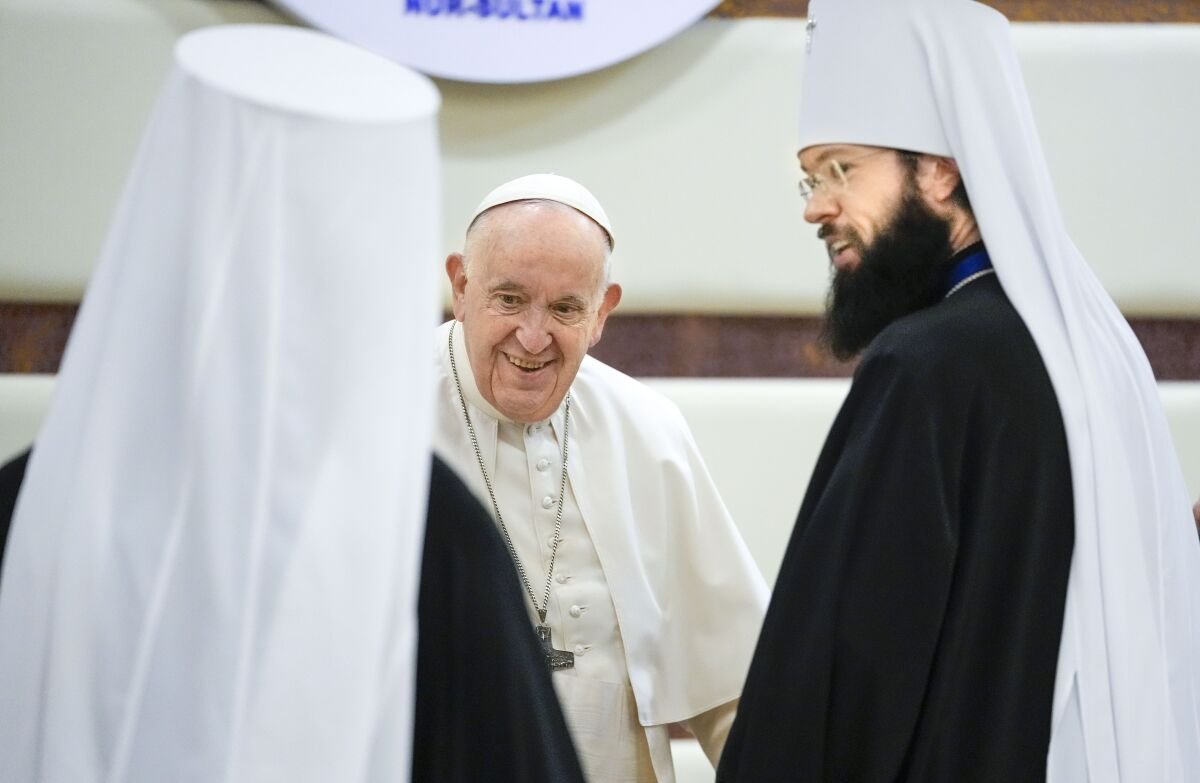
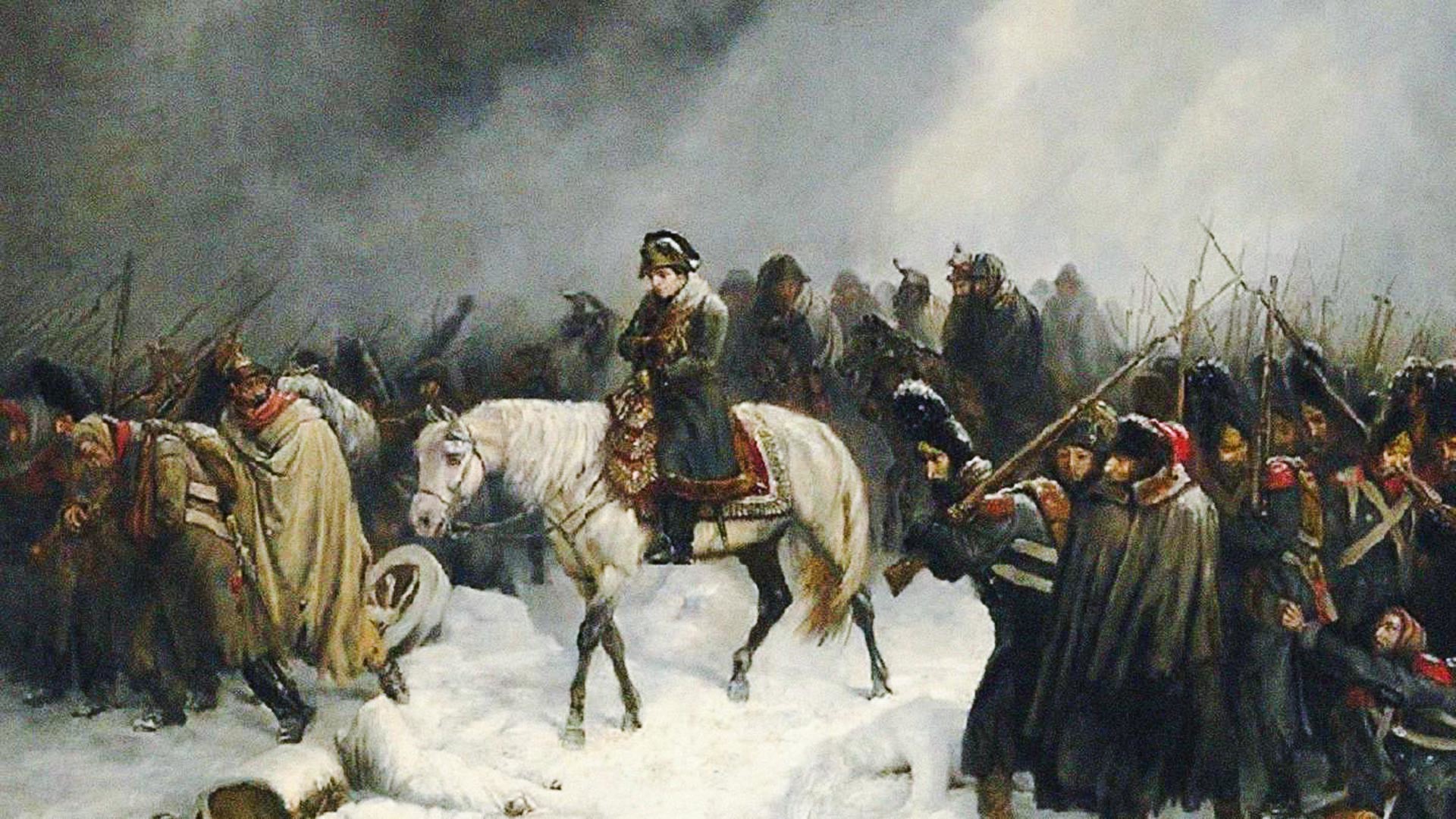
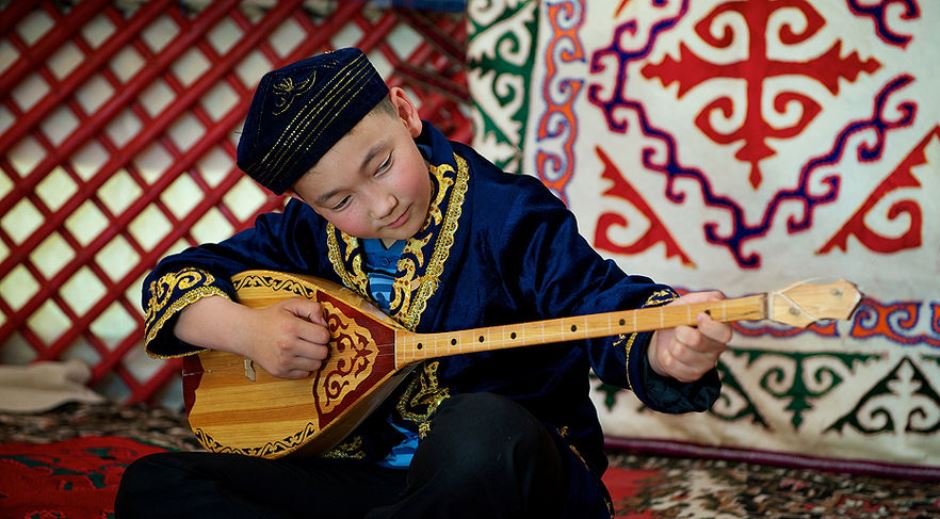
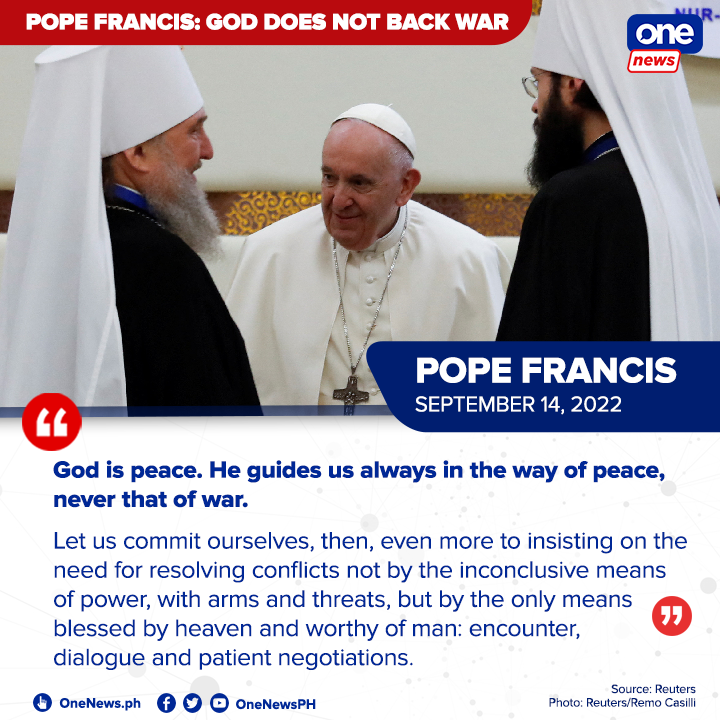
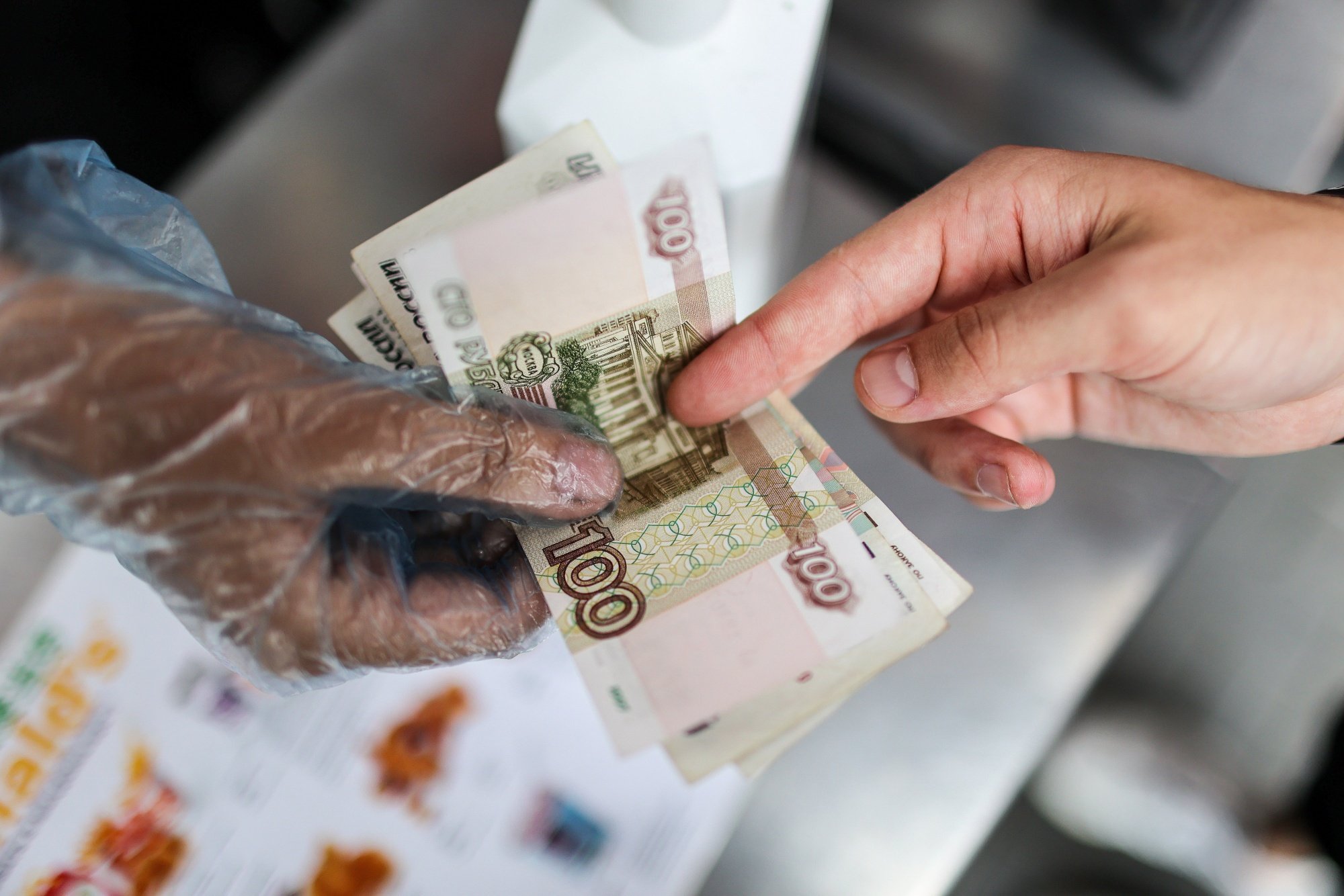
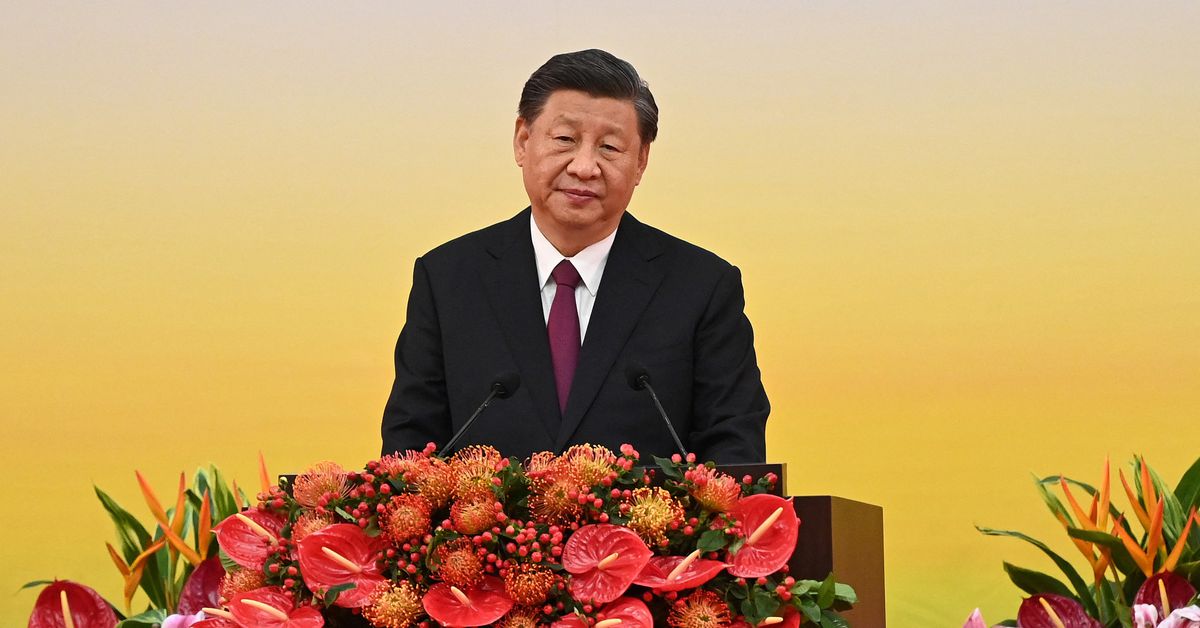
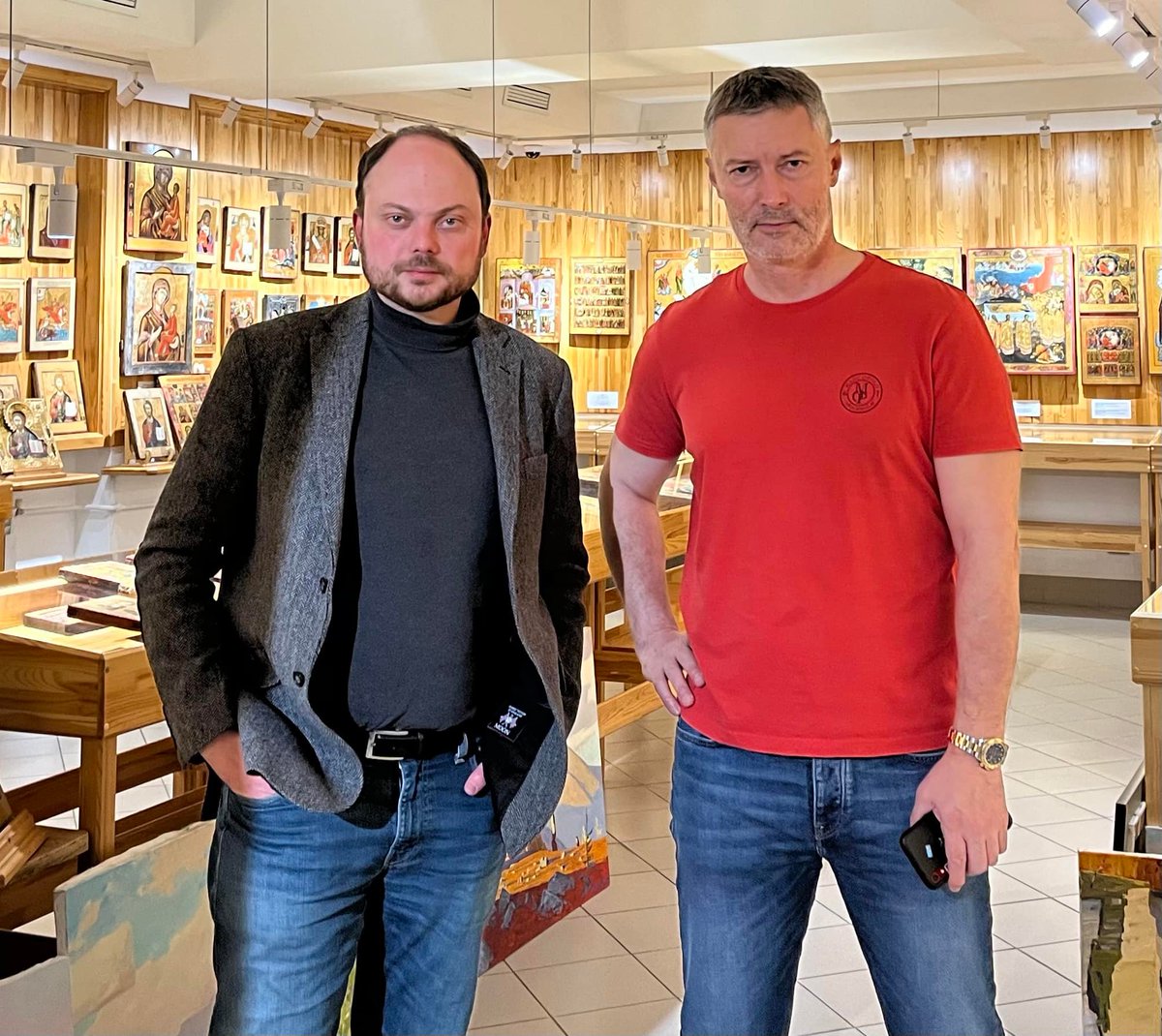


Comments
Post a Comment